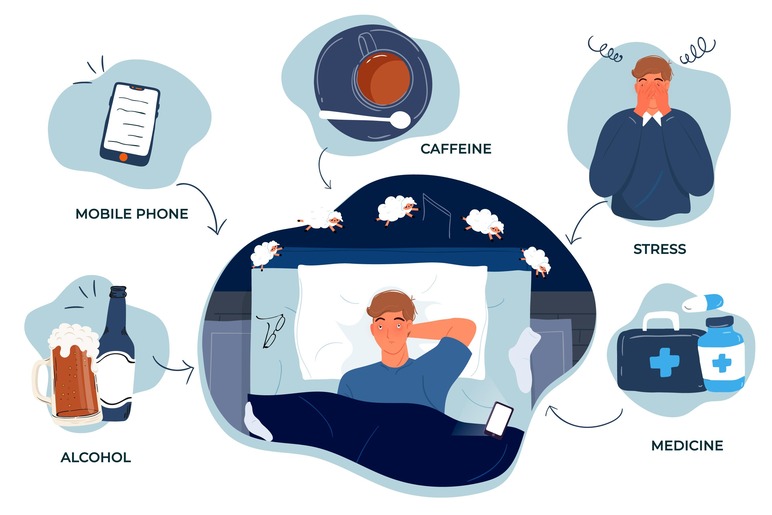For years, I thought that sleeping well was simply about going to bed when I felt tired and waking up when I had to. It wasn’t until I started waking up groggy, irritable, and sluggish—despite getting “enough hours” of sleep—that I realized there was more to it. Sleep is not just a nightly reset; it’s a pillar of physical and mental health, as vital as nutrition and exercise.
It began with small changes. I noticed that on nights when I scrolled endlessly on my phone before bed, my sleep felt shallow, restless, and broken. My mind stayed wired, replaying conversations and to-do lists long past midnight. On the other hand, nights when I dimmed the lights, made a cup of herbal tea, and read a book, I would fall asleep without noticing—and wake up feeling lighter, as if my brain had truly decluttered.
This, I later learned, is what sleep hygiene is all about—shaping your habits and environment so that your body naturally knows when it’s time to wind down. It’s not a rigid set of rules, but rather a gentle, consistent rhythm that guides your evenings. Over time, these rituals signal to your brain that rest is coming, allowing it to shift gears from high alert to deep relaxation.
One of the most transformative changes I made was keeping a regular sleep schedule—even on weekends. It felt a little strange at first, like I was “missing out” on late-night freedom. But my body quickly adapted, and mornings became easier, less like a battle with the alarm clock and more like a natural waking. Paired with a cozy bedtime environment—soft, breathable sheets, a cool room, and no glaring electronics—it became easier to slip into sleep without struggle.
I also learned to respect the power of light. Bright screens late at night trick the brain into thinking it’s still daytime, delaying melatonin release. Now, as the evening deepens, I dim the lights and keep screens away. In the mornings, I open my curtains immediately to let sunlight flood in, telling my body that it’s time to wake up fully.
Then there’s the subtle influence of evening activities. I used to try to “unwind” by catching up on intense TV shows, but the adrenaline kept me restless. Now, I opt for calm—gentle stretches, journaling, or listening to soothing music. It’s not that I’ve given up exciting evenings entirely; I’ve just learned when to let them end so my mind can ease into rest mode.
Good sleep is not about perfection. Some nights will still be restless. But when most of your days follow a rhythm that honors your body’s need for deep rest, sleep stops feeling like a coin toss and starts becoming a trusted, restorative ritual. Over time, you notice it in subtle ways—clearer thinking, better mood, stronger immunity, and an overall steadiness that spills into every part of life.
Sleep, I’ve learned, is not something you earn after a long day—it’s the foundation that allows you to live those days well.
Nightly Sleep Hygiene Routine
1. Set a consistent bedtime
Choose a bedtime that allows you to get 7–9 hours of sleep, and stick to it—even on weekends. This helps your body’s circadian rhythm stay steady.
2. Create a calming wind-down ritual (30–60 minutes before bed)
- Dim the lights.
- Put away work-related items.
- Avoid screens or use blue light filters if you must be on devices.
- Switch to relaxing activities like reading a physical book, light stretching, or journaling.
3. Limit late-night stimulants
Avoid caffeine at least 6 hours before bedtime and heavy meals 2–3 hours before. If you’re hungry, opt for a small, sleep-friendly snack like warm milk, bananas, or almonds.
4. Prepare your sleep space
- Keep the bedroom cool (60–67°F / 15–19°C).
- Use blackout curtains or an eye mask.
- Ensure your mattress and pillows are comfortable.
- Reduce noise with earplugs or a white noise machine if needed.
5. Use a relaxation technique before bed
- 4-7-8 breathing: Inhale for 4 seconds, hold for 7, exhale for 8.
- Gentle meditation or guided sleep audio.
- Light progressive muscle relaxation.
6. Disconnect mentally from the day
If thoughts keep you awake, write them down in a “worry journal” to revisit the next day. This helps signal your brain that the day is over.
7. Avoid clock-watching
Turn your alarm clock away so you don’t stress about the time if you wake up in the night.
